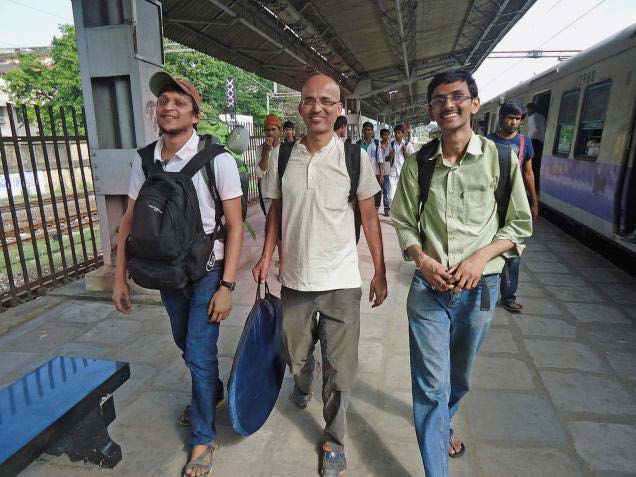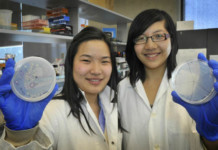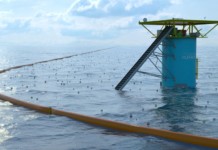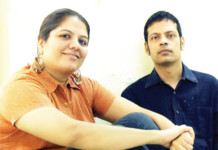Bottled drinking water has become so common it appears as if there’s no alternative to safe drinking water in India and in most other developing countries. The truth is that precious fossil fuel and resources are wasted trying to reach clean water. The irony is that once used, the PET bottles that keep our drinking water clean, end up contaminating and polluting water sources and the ocean. It is estimated that every second 1500 bottles head to a landfill.
Aghast at this impact Minhaj Ameen, Akshay, Saketh and Sandeep got together to find an alternative. They launched amrutDhara – a safe drinking water solution at public places. Set up in Auroville, Pondicherry (www. amrutdhara.in) they are setting up a network of water stations which dispense safe drinking water for as little as between Rs.4 and Rs.8 a liter as against Rs. 15 – 20 for a one liter bottle in the market. It encourages consumers to use their own bottles or reuse bottles as well. The price varies depending on the location and By Vaani Anand source of water. The variation accounts for the retailer’s margins and the volumes dispensed. For instance, it may be cheaper in a public place like a bus or train station.
The founders’ logic is – If 90 percent of the cost of the drinking water bottle is the making of the bottle itself, can the same quality of water be made available without the bottle? amrutDhara plans to develop micro entrepreneurs by getting thousands of vendors to run the water stations in public spaces like railway and bus stations.
Ensuring quality of water
amrutDhara is putting up a realtime testing and quality process and the data is made accessible online.
They will be setting up water stations in public spaces which not only dispense water but will also act as a medium for communication and awareness. These stations will have filtration systems that are appropriate for the quality of inlet water, hygienic short-term storage, real-time testing and displays to show all monitored data.
An important difference between similar services run by other companies and amrutDhara is that the vendor is an essential part of the amrutDhara family. Through a series on incentives and workshops they will ensure that the vendor is a motivated social entrepreneur and a partner with stakes in the success of the whole enterprise.
A start-up, amrutDhara is working very hard to make this dream a reality. Sandeep and Minhaj work on the strategic tie-ups and forays and Akshay takes care of designing innovative communication tools that are put up at amrutDhara retail outlets. Saketh has the evangelical yet uphill task of networking and convincing shop-keepers and retailers to be a part of the amrutDhara journey.
How Plastic Kills
Plastic bottles that are discarded disintegrate very slowly and leach “Phthalates” which contain carcinogenic compounds and at least one heavy metal like antimony. “These things are harmful for us but there is still no research to prove how harmful these are for human and living beings,” says Minhaj. Microplastics are formed in the environment as a consequence of the breakdown of larger plastic material, especially marine debris, into smaller and smaller fragments. The breakdown is caused by mechanical forces (e.g. waves) and/or photochemical processes triggered by sunlight (especially UVB). “People are worried that unsafe water will cause diarrhea but are blissfully unaware of the extreme harm that plastic bottles cause in the long run and choose to buy a bottle of water instead,” says Minhaj.
There are many concepts similar to that of amrutDhara working in Villupuram in Tamil Nadu and New Delhi already. “I have seen some dispensing machines and systems similar to ours in Malaysia where they are working extremely well,” says Minhaj.
Minhaj has a big dream for India. “I dream that one day, there will be a taboo associated with drinking bottled water just like there is for people who spit or pick their nose in public. We should have a day when buying bottled water is not cool anymore.”








